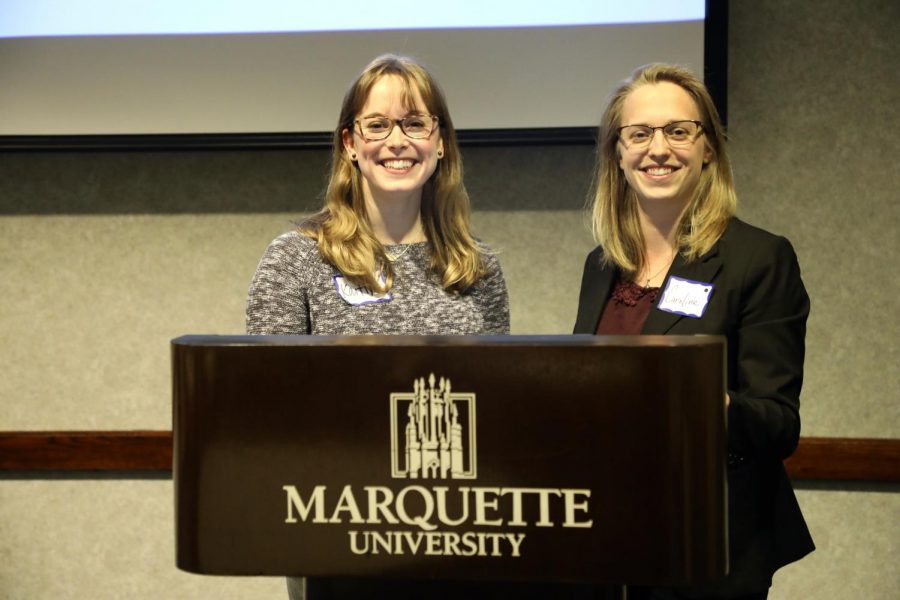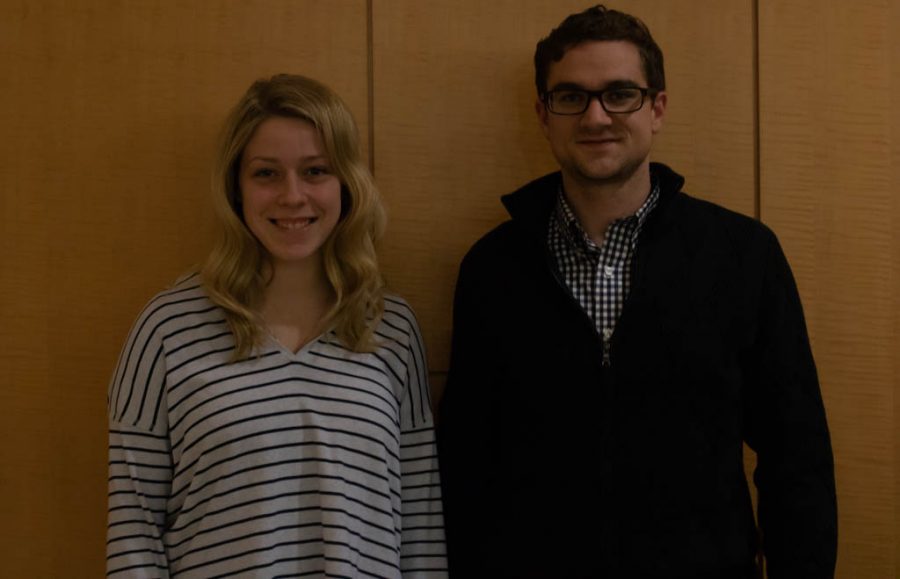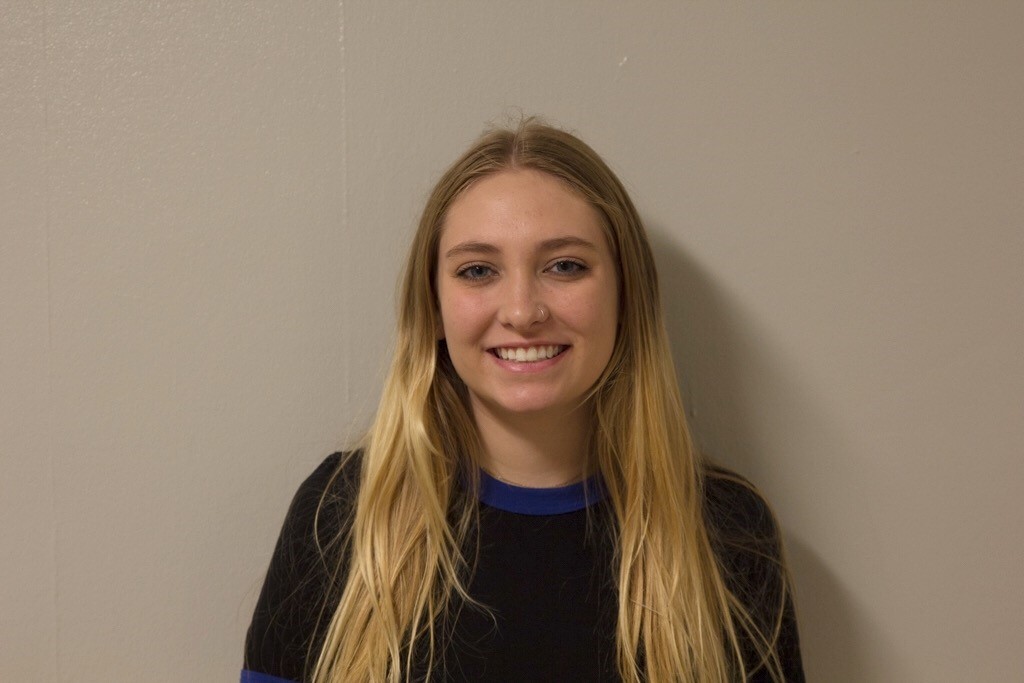Two students shared their findings on interfaith dialogue between Christians and Muslims in the Milwaukee area at the annual Interfaith Symposium Monday.
Kaitlyn Daly, Nursing ’17, and Caroline Redick, a Ph.D. candidate in theology, worked on a year-long research project with three other students examining different aspects of interfaith dialogue between Christians and Muslims in Milwaukee. Irfan Omar, a professor of theology and world religions, helped facilitate the research project.
Daly, Redick and the three other students were in Omar’s interfaith graduate class in spring 2017. Their final project evolved beyond the classroom and grew into an academic publication.
Daly focused on the role of institutions like Marquette, University of Wisconsin-Milwaukee and Cardinal Stritch University in furthering interfaith dialogue efforts. Redick created an in-depth timeline of how formal interfaith dialogue began in the area.
“People think that religions are not supposed to mix or contact each other because they have exclusive claims,” Omar said. “On the contrary, what we find out is that the exclusive claims made by people of religious traditions are only a minority.”
Omar said he noticed an increase of people from different religions saying that interfaith dialogue is mandatory.
Daly said she hoped to increase awareness and encourage more interfaith activities at Marquette through her research.
“I noticed that there was a little bit of a lack of interfaith opportunities at Marquette,” Daly said. “Amongst other students … a handful of us wanted to go forth and pursue more interfaith efforts on campus.”
There had been no academic research done on the insurgence of Christian-Muslim relations in Milwaukee before Daly and her peers began researching the issue. A book compiling all five students’ research will be published sometime in fall 2018, titled “Bridging the Religious Divide: 36 Years of Christian-Muslim Dialogue in Milwaukee.”
Daly found that many barriers to interfaith dialogue still hinder students and community members from being a part of the dialogue, such as conflicting schedules and fear of the unknown. She also mentioned several people she interviewed in her research were scared of being converted to a different religion.
Daly said the solution to breaking down these barriers is creating relationships.
“The overall dialogue and coming together can look a lot of different ways, but it welcomes all … regardless of being grounded in a faith tradition or to discover one,” Daly said. “It invites them all to grow spiritually, religiously, intellectually, together in one spot.”
Redick said nine mosques serve 15,000 Muslims in the Milwaukee area. That number was much smaller in 1980 when two nuns from Cardinal Stritch University, Sr. Lucille Walsh and Sr. Jessine Reiss, began an interfaith effort with Abbas Hamdani, a professor emeritus of Islamic studies at UW-Milwaukee. The three continued to create a conversation between faiths until 2000.
While the formal dialogues ended, Redick said the annual Interfaith Conference of Greater Milwaukee and the Milwaukee Muslim-Catholic Healthcare Initiative, among other efforts, have spurred further collaboration between Christians and Muslims.
Redick said loving one’s neighbor is one of the most important aspects of the Christian and Muslim faiths. She said the power of that love should not be underestimated.
“The dialogue’s not just about academically understanding this religion, and it’s also asking how we can work together to do this project,” Redick said. “The end is love and saying, ‘How do I love the other?'”
Redick said she believes challenging one’s identity also strengthens it by increasing knowledge of others.
“I get to understand ideas and things that I held because now I’m conversing with someone else about them,” Redick said. “They have questions about it, and I didn’t think about those questions.”





